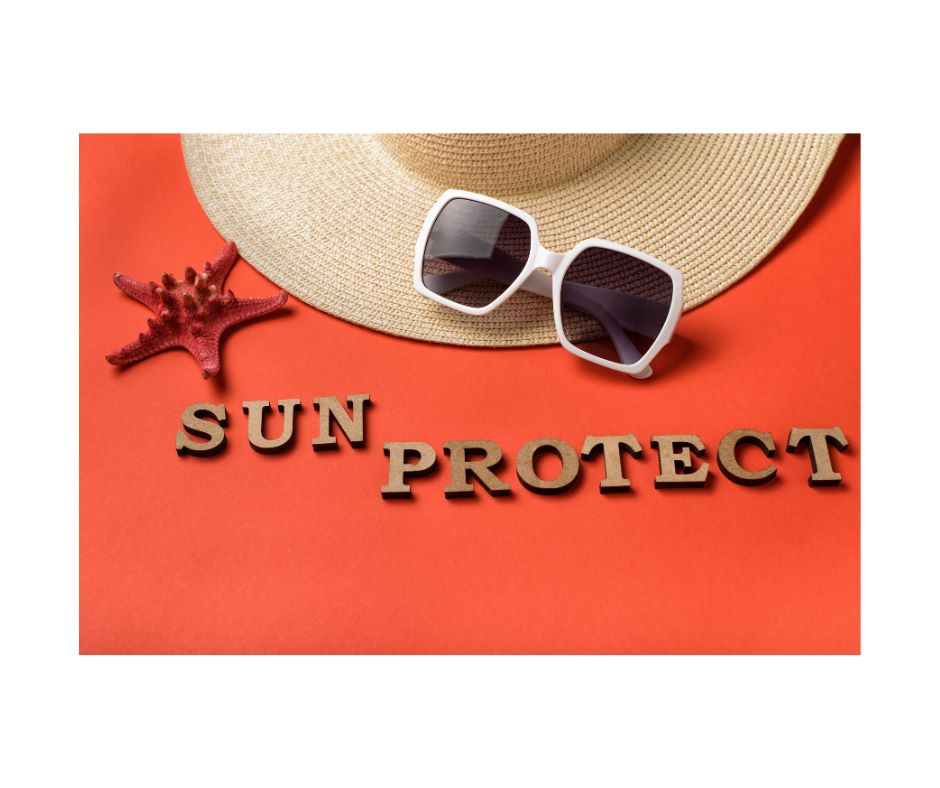Sun protection from the inside out is a growing trend in skincare. Eating foods rich in antioxidants and other nutrients can help protect your skin from sun damage and keep it looking healthy. In addition to topical solutions, such as sunscreen, many foods can help provide sun protection from the inside out. In this article, we’ll look at some of the best foods and nutrients for sun protection from the inside out.
What Type of Diet is Best for Internal Sun Protection?
There’s solid data that the Mediterranean-style diet protects your skin from the sun. In addition to eating plenty of fruits and vegetables, the Mediterranean diet includes sources of healthy fats, such as nuts, olive oil, fish, and whole grains, but low in red meat. “It fortifies the skin against damage, leaving it less vulnerable to UV exposure.” In fact, despite high levels of sun exposure in the Mediterranean, countries like Greece, Italy, and Spain have significantly lower rates of skin cancer than the United States.
A 2008 study published in the International Journal of Epidemiology found that eating fish weekly, drinking tea daily, and eating plenty of vegetables (especially carrots, cruciferous vegetables, and green leafy vegetables) and fruit (especially citrus fruits) have a protective effect. According to researchers, following a Mediterranean diet focusing on these foods can cut the risk of melanoma in half. This type of diet is recommended to maintain your immune system best. “There is no more important factor in preventing skin cancer than the immune system,” they say. “You have to be strong to get into DNA repair and eliminate cellular dysfunction.”
10 Natural Sun-Care Supplements To Consider
Heliocare: Plants also need to protect themselves from the devastating effects of long-term UV exposure, so they contain powerful natural antioxidants that help neutralize free radicals. This is why skin scientists developed the over-the-counter product called Heliocare. It is made from Polypodium leucotomos extract (PLE), a fern native to Central and South America that has been used for centuries as a remedy for skin ailments.
Niacinamide (Vitamin B3): Australia is a testing ground for skin cancer research due to the sizeable Anglo-Saxon population in the subtropical continent. Skin cancer has reached pandemic proportions, so researchers at the University of Sydney have set out to demonstrate whether daily doses of niacinamide can protect Australians from skin cancer risk. The study examined 386 people with at least two skin cancers in the past five years. They were asked to take niacinamide 500mg twice a day for one year, and the results were compared with the placebo group. There was a 23% reduction in skin cancer in the niacinamide group. Additionally, there was an 11% reduction in scaly, hard “precancerous” known as purple keratoses after just three months of use and 20% after nine months. These results apply to basal and squamous cell skin cancers (so far the predominant skin cancer) but not to more aggressive malignancies. Interestingly, after the study ended and the subjects stopped taking niacinamide, their skin cancer rates quickly returned to normal. Although niacinamide is not generally considered an antioxidant, it plays a role in stabilizing DNA replication. Coding errors in genetic material under the sun lead to mutations in cell lines that can lead to skin cancer. While not for everyone, high doses of B3 may prove helpful for those who need frequent “barnacle scraping” at the dermatologist. For those following this protocol, be careful not to confuse the niacinamide B3 form with niacin B3, which can cause nasty hot flashes and even liver damage in some people taking high doses without being monitored.
Astaxanthin: Among the most potent carotenoid antioxidants, astaxanthin has been touted as the “inner sunscreen.” When used in sufficient amounts, it increases skin pigmentation and provides natural sunscreen while also creating a slightly orange tint. Found naturally in shrimp, salmon, and krill, studies show it reduces skin damage caused by the sun. Other research shows it reduces wrinkles in the skin and minimizes the loss of skin elasticity.
Lycopene: Another member of the carotene family, tomatoes and watermelon are rich natural sources of this powerful antioxidant. Research shows that eating tomato paste daily for ten weeks reduces sunburn by 40%!
Vitamin E: Since vitamin E is a powerful antioxidant, it should be part of your skin-protecting product portfolio. A 2000 study found that vitamin E may prevent sun damage, with added benefits when combined with beta-carotene. But a subsequent study evaluating the effects of consuming 400 IU of alpha-tocopherol per day found no protective effect against sun exposure. Topical applications of vitamins E and C have been shown to slow sunburn, so they are included in many sunscreen products, such as Tizo Mineral Tinted Sun Defense.
Vitamin D: After first exposure to skin cancer, the warning is often heard as “Avoid sun exposure.” This can paradoxically increase the risk of subsequent skin cancer. Vitamin D is a potent cancer inhibitor, and researchers are currently trying to “tweak” its chemical structure to prepare drugs to treat skin cancer. Maintaining adequate levels of vitamin D is even thought to play a role in preventing melanoma.
EGCG: Epigallocatechin gallate (EGCG) from green tea has been shown to have common anti-cancer effects. Clinical trials are underway to determine whether topical application of EGCG can delay the progression of basal cell skin cancer; Some studies suggest that taking it by mouth also has a similar effect.
Curcumin: With well-proven anti-inflammatory and anti-cancer effects, curcumin, a pure turmeric derivative, is a promising nutraceutical for sun protection. Test-tube experiments show that it can block the replication of melanoma cells; Curcumin creams have been touted to reverse skin damage caused by UV exposure, as have oral curcumin supplements.
Pycnogenol: Extracted from the bark of the French marine pine tree (grown in the South of France, an area with strong sunlight), pycnogenol is rich in the antioxidant proanthocyanidins. Topical application of pycnogenol following UV exposure significantly reduces the inflammatory response, reducing swelling and redness. When healthy volunteers were given a dose of pycnogenol before sun exposure, it doubled their ability to fight redness. Pycnogenol has also been documented to prevent collagen cross-linking, a hallmark of skin loss of elasticity and wrinkles.
Grape Seed Extract: A landmark study of naked mice exposed to UV light found that oral supplementation reduced the incidence and severity of skin cancer.
Cocoa Flavanols: Cocoa is rich in polyphenols with antioxidant and anti-inflammatory properties. Polyphenols can exert a protective effect on the skin. A study has shown that regular consumption of flavanol-rich chocolate offers significant photoprotection and may protect your skin from the harmful effects of UV rays. It should be noted that researchers have reported that regular chocolate has no such effect, underscoring the importance of choosing a high-flavanol cocoa formula.
Pomegranate: Along with many berries, pomegranates are rich in the natural antioxidant ellagic acid. UCLA researchers found that consuming pomegranate juice or extract reduces the risk of exposure to UVB rays, which can lead to skin damage.
Nutraceuticals are not a substitute for limiting sun exposure; they offer a second line of defense against skin cancer and solar aging.
Read More…Life Extension

